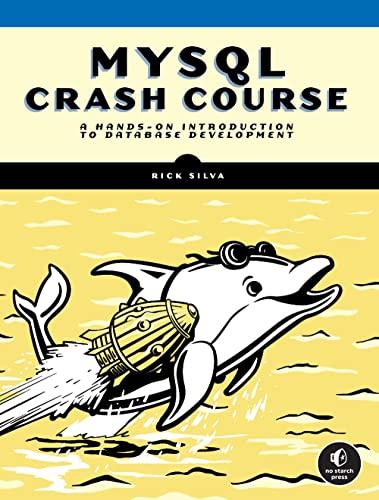Answered step by step
Verified Expert Solution
Question
1 Approved Answer
// // This is example code from Chapter 6.7 Trying the second version of // Software - Principles and Practice using C++ by Bjarne Stroustrup
// // This is example code from Chapter 6.7 "Trying the second version" of // "Software - Principles and Practice using C++" by Bjarne Stroustrup // /* This file is known as calculator02buggy.cpp I have inserted 5 errors that should cause this not to compile I have inserted 3 logic errors that should cause the program to give wrong results First try to find an remove the bugs without looking in the book. If that gets tedious, compare the code to that in the book (or posted source code) Happy hunting! */ #include "../std_lib_facilities.h" //------------------------------------------------------------------------------ lass Token { public: char kind; // what kind of token double value; // for numbers: a value Token(char ch) // make a Token from a char :kind(ch), value(0) { } Token(char ch, double val) // make a Token from a char and a double :kind(ch), value(val) { } }; //------------------------------------------------------------------------------ class Token_stream { public: Token_stream(); // make a Token_stream that reads from cin Token get(); // get a Token (get() is defined elsewhere) void putback(Token t); // put a Token back private: bool full; // is there a Token in the buffer? Token buffer; // here is where we keep a Token put back using putback() }; //------------------------------------------------------------------------------ // The constructor just sets full to indicate that the buffer is empty: Token_stream::Token_stream() :full(false), buffer(0) // no Token in buffer { } //------------------------------------------------------------------------------ // The putback() member function puts its argument back into the Token_stream's buffer: void Token_stream::putback(Token t) { if (full) error("putback() into a full buffer"); buffer = t; // copy t to buffer full = true; // buffer is now full } //------------------------------------------------------------------------------ Token get() { if (full) { // do we already have a Token ready? // remove token from buffer full=false; return buffer; } char ch; cin >> ch; // note that >> skips whitespace (space, newline, tab, etc.) switch (ch) { case ';': // for "print" case 'q': // for "quit" case '(': case ')': case '+': case '-': case '*': case '/': return Token(ch); // let each character represent itself case '.': case '0': case '1': case '2': case '3': case '4': case '5': case '6': case '7': case '9': { cin.putback(ch); // put digit back into the input stream double val; cin >> val; // read a floating-point number return Token('8',val); // let '8' represent "a number" } default: error("Bad token"); } } //------------------------------------------------------------------------------ Token_stream ts; // provides get() and putback() //------------------------------------------------------------------------------ double expression(); // declaration so that primary() can call expression() //------------------------------------------------------------------------------ // deal with numbers and parentheses double primary() { Token t = ts.get(); switch (t.kind) { case '(': // handle '(' expression ')' { double d = expression(); t = ts.get(); if (t.kind != ')') error("')' expected); return d; } case '8': // we use '8' to represent a number return t.value; // return the number's value default: error("primary expected"); } } //------------------------------------------------------------------------------ // deal with *, /, and % double term() { double left = primary(); Token t = ts.get(); // get the next token from token stream while(true) { switch (t.kind) { case '*': left *= primary(); t = ts.get(); case '/': { double d = primary(); if (d == 0) error("divide by zero"); left /= d; t = ts.get(); break; } default: ts.putback(t); // put t back into the token stream return left; } } } //------------------------------------------------------------------------------ // deal with + and - double expression() { double left = term(; // read and evaluate a Term Token t = ts.get(); // get the next token from token stream while(true) { switch(t.kind) { case '+': left += term(); // evaluate Term and add t = ts.get(); break; case '-': left += term(); // evaluate Term and subtract t = ts.get(); break; default: ts.putback(t); // put t back into the token stream return left; // finally: no more + or -: return the answer } } } //------------------------------------------------------------------------------ int main() try { while (cin) { Token t = ts.get(); if (t.kind == 'q') break; // 'q' for quit if (t.kind == ';') // ';' for "print now" cout << "=" << val << ' '; else ts.putback(t); val = expression(); } keep_window_open(); } catch (exception& e) { cerr << "error: " << e.what() << ' '; keep_window_open(); return 1; } catch (...) { cerr << "Oops: unknown exception! "; keep_window_open(); return 2; } // Step by Step Solution
There are 3 Steps involved in it
Step: 1

Get Instant Access to Expert-Tailored Solutions
See step-by-step solutions with expert insights and AI powered tools for academic success
Step: 2

Step: 3

Ace Your Homework with AI
Get the answers you need in no time with our AI-driven, step-by-step assistance
Get Started


